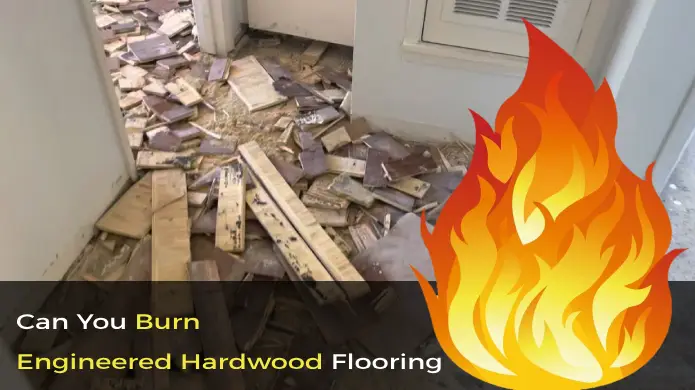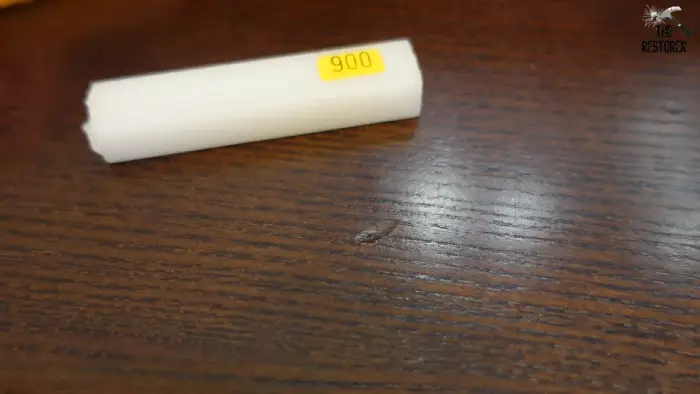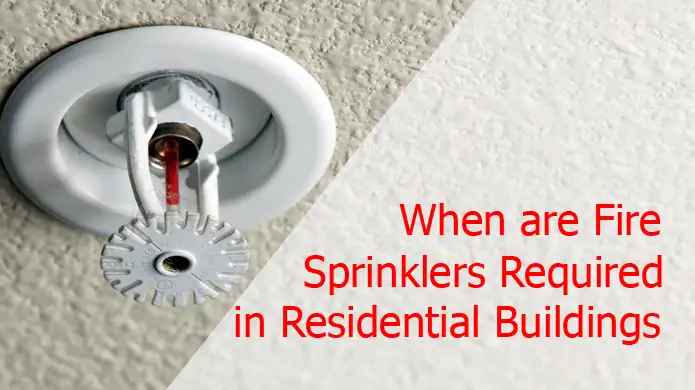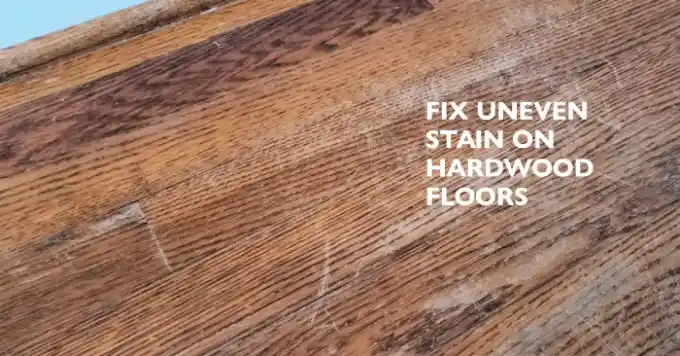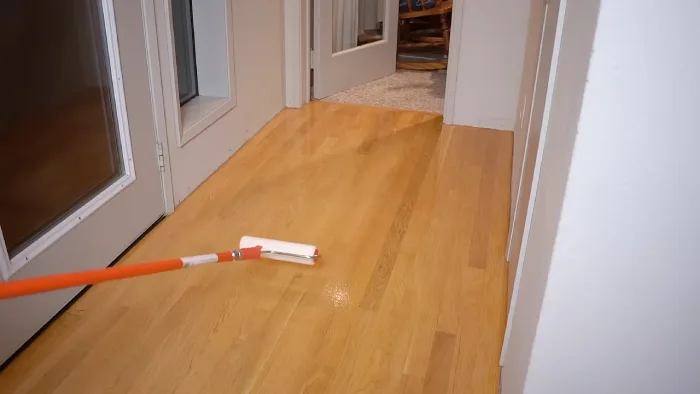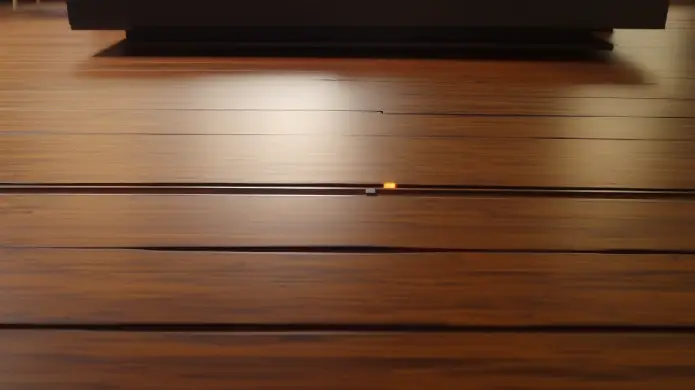Can You Burn Engineered Hardwood Flooring: What to Consider?
If you’re considering disposing of your old engineered hardwood flooring, you may be wondering if burning it is a viable option. While burning may seem like an easy solution, it’s important to understand the risks and drawbacks associated with this method.
First and foremost, burning engineered hardwood flooring is not recommended. This is because engineered hardwood flooring is made up of various layers of materials, including a top layer of hardwood and a bottom layer of plywood or other composite materials.
When burned, these layers can release harmful chemicals and pollutants into the air, posing a risk to your health and the environment.
Burning engineered hardwood can also damage your fireplace or stove and create a buildup of creosote, which can increase the risk of chimney fires.
In the following article, we’ll discuss the risks and drawbacks of burning engineered hardwood flooring and alternative methods for disposing of it. We’ll also review some tips to help you stay safe if you burn engineered hardwood flooring.
Why Shouldn’t You Burn Engineered Hardwood?
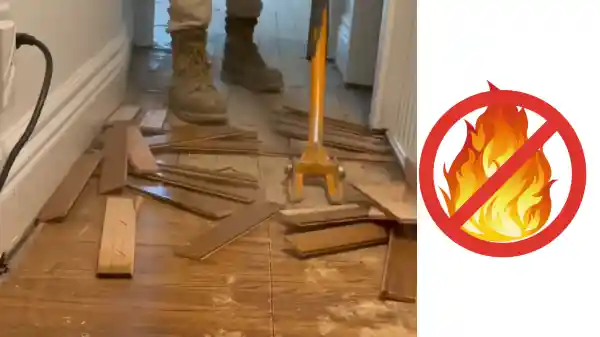
You shouldn’t burn engineered hardwood flooring because it can release toxic fumes and hazardous substances into the air. This can harm your health and the environment and potentially damage your property.
Here are some of the main issues that can occur when burning engineered hardwood:
- Toxic Fumes
- Environmental Impact
- Potential Damage
- Indoor Air Quality
- Structural Integrity
- Fire Hazards
- Legal Considerations
No 01: Toxic Fumes
Burning engineered hardwood flooring can release a multitude of toxic fumes and pollutants into the air, posing serious health risks to those nearby. The adhesives, resins, and other synthetic materials that make up engineered hardwood are not meant to be burned.
When subjected to high temperatures, they can release harmful chemicals such as formaldehyde, benzene, and carbon monoxide.
These toxic fumes can cause a range of health problems, from mild irritation of the eyes and throat to more serious respiratory issues, such as asthma and bronchitis. In addition, prolonged exposure to these fumes can increase the risk of cancer, especially in those with a history of respiratory problems.
No 02: Environmental Impact
By disposing of your old engineered hardwood responsibly, you can reduce the environmental impact of your renovation or demolition project. Burning engineered hardwood contributes to air pollution and releases greenhouse gasses into the atmosphere, which can contribute to climate change.
In addition, burning engineered hardwood can release hazardous substances such as formaldehyde, which can harm human health.
No 03: Potential Damage
Ignoring the potential for damage when disposing of old engineered hardwood flooring can lead to costly and irreversible consequences for your home. Attempting to burn engineered hardwood can cause damage not only to the flooring itself, but also to the surrounding area.
The high temperatures and intense heat produced by burning can cause walls, fixtures, or other structures to become damaged or even catch fire. This can have negative effects on both human health and the environment.
No 04: Indoor Air Quality
Indoor air quality can be severely impacted by the harmful particulate matter released when disposing of old engineered hardwood, likened to a smoggy day in a polluted city.
To ensure good indoor air quality, it’s important to consider the following:
Proper disposal: Don’t burn old engineered hardwood. Instead, dispose of it in a responsible manner that avoids harmful emissions.
Ventilation: When working with materials that may release pollutants, ensure proper ventilation in the area. This can help to reduce the concentration of harmful particles in the air.
Air purifiers: Consider using an air purifier with a HEPA filter, which can help to remove particulate matter from the air.
Professional help: If you need help with how to properly dispose of old engineered hardwood or are experiencing indoor air quality issues, consider consulting with a professional for guidance and assistance.
No 05: Structural Integrity
Engineered hardwood can lose its shape and durability when exposed to high heat, making it unsuitable for its intended purpose. The high temperatures generated during burning can cause warping, charring, or disintegration of the material.
This is due to the fact that engineered hardwood is designed to be used in specific applications, such as flooring or cabinets, and burning it compromises its structural integrity.
No 06: Fire Hazards
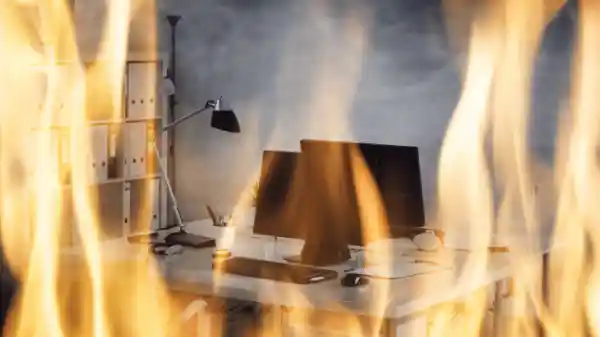
Imagine a small spark igniting a fire that quickly spreads through your home, fueled by the burning material that was never meant to be set ablaze. This is the reality of burning engineered hardwood flooring.
The intense heat and flames can easily spread to other flammable objects in your home, leading to a potentially dangerous situation.
No 07: Legal Considerations
Don’t even think about breaking the law and risking legal consequences by setting fire to that composite wood material. Many jurisdictions prohibit the burning of engineered hardwood flooring due to the potential health and environmental hazards it may pose.
Moreover, burning engineered hardwood may release harmful chemicals such as formaldehyde, which may cause respiratory problems and other health issues.
It’s important to follow the laws and regulations in your area regarding waste disposal and burning of materials. Some local regulations or building codes may prohibit the burning of certain materials, including engineered hardwood.
Violating these laws may result in hefty fines and other legal consequences. Therefore, it’s imperative to properly dispose of engineered hardwood flooring by contacting local waste management or recycling centers.
How Can You Dispose of Engineered Hardwood Without Burning It?
When it comes to disposing of engineered hardwood flooring, burning it should never be an option. Instead, you have several environmentally-friendly alternatives available to you.
Contact Your Local Waste Management Facility
To get a clear idea of how to properly dispose of your engineered hardwood flooring, it’s best to reach out to your local waste management facility. They can offer guidance on the most appropriate way to dispose of the flooring based on your location’s regulations and the available services.
Here are some reasons why contacting your local waste management facility is the best option:
i) It ensures that you’re complying with local regulations. Different cities and states have varying regulations for disposing of construction waste. Check with your local waste management facility to ensure you follow the proper procedures.
ii) You can avoid potential fines or penalties. Disposing of construction waste improperly can result in fines or penalties. By seeking guidance from your local waste management facility, you can avoid these potential consequences.
iii) It helps protect the environment. Improperly disposing of construction waste can have negative impacts on the environment. By working with a waste management facility, you can ensure that your engineered hardwood flooring is disposed of in an environmentally responsible way.
Recycling
Recycling your old engineered hardwood flooring is a great way to reduce waste and give it a new purpose. Instead of throwing it in the trash, you can explore recycling options such as repurposing or donating the material.
Many waste management facilities may accept wood materials for recycling. Recycling helps reduce the amount of waste that ends up in landfills, which can harm the environment.
By repurposing your old flooring, you can help conserve resources and reduce the carbon footprint associated with the production of new materials.
Recycling can save you money on disposal fees and may even provide you with a tax deduction if you donate the material to a non-profit organization.
Reuse or Donation
Consider giving your old flooring a new life by donating it to someone in need or an organization that can reuse it, and make a positive impact on the environment and someone’s life. Donating your flooring can be a great option if it’s in good condition and you’re updating your home or office.
Here are some benefits of donating your flooring:
- Reduces waste: Donating your flooring helps reduce waste and promotes sustainability by giving it a second life instead of ending up in a landfill.
- Saves money: By donating your flooring, you may be able to save money on disposal fees or the cost of new flooring.
- Helps others: Donating your flooring to organizations or individuals in need can make a positive impact on their lives by providing a much-needed resource.
- Tax benefits: Depending on where you live, donating your flooring may make you eligible for tax benefits or deductions.
- Promotes sustainability: By donating your flooring, you’re promoting sustainability and helping to reduce the impact of manufacturing new materials.
Can I burn engineered hardwood in my backyard fire pit or chiminea?
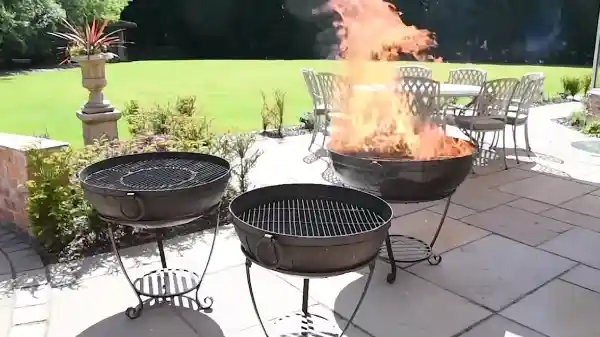
Hey, you might be tempted to burn that leftover engineered hardwood flooring in your backyard fire pit or chiminea, but it’s not worth the health risks from the toxic fumes it can release.
The high temperatures generated by these fire sources can cause the release of chemicals like formaldehyde and other volatile organic compounds (VOCs), which can be harmful to you and those around you.
Will burning engineered hardwood save me money on heating costs?
Burning engineered hardwood for heating purposes isn’t a wise financial decision due to its low energy value and potential damage to heating equipment. Here are four reasons why:
Energy Value
Engineered hardwood has a lower energy value compared to traditional firewood or heating sources. This means you’ll need to burn more of it to achieve the same heating output, which translates to higher costs in the long run.
Potential Damage to Heating Equipment
Burning engineered hardwood can damage your heating equipment due to the presence of adhesives and other chemicals used in its production. These can clog up your system, leading to costly repairs or replacements.
Health Risks
Burning engineered hardwood can release harmful chemicals and fumes into the air, which can be harmful to your health. This is especially true if your heating system needs to be properly vented.
Environmental Impact
The burning of engineered hardwood can cause air pollution and greenhouse gas emissions, which can have a negative impact on the environment. It’s important to consider the environmental impact of your heating choices and opt for more sustainable options.
Choose Eco-Friendly Alternatives for Disposing of Engineered Hardwood Flooring
Burning your old engineered hardwood flooring is not a recommended disposal method due to the release of harmful chemicals and potential damage to your fireplace or stove.
Instead, consider contacting your local waste management facility or hiring a professional waste removal service for safe and effective disposal. Prioritizing the health and safety of yourself and your community is crucial, and it’s always better to choose alternative means for the sake of the environment and our well-being.
Let’s make responsible disposal a priority, one step at a time.

